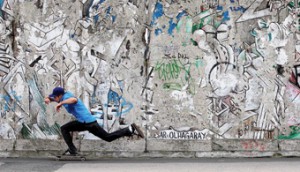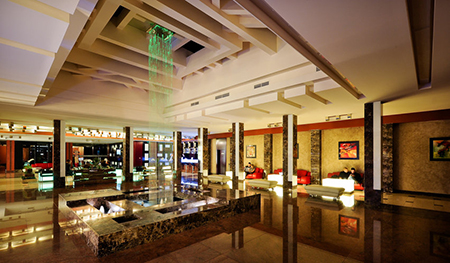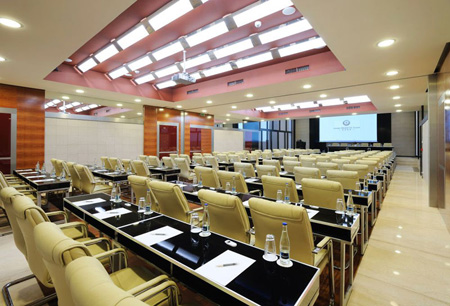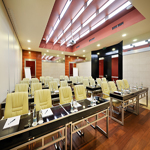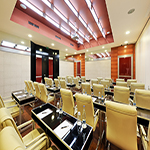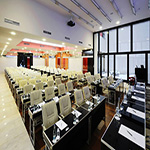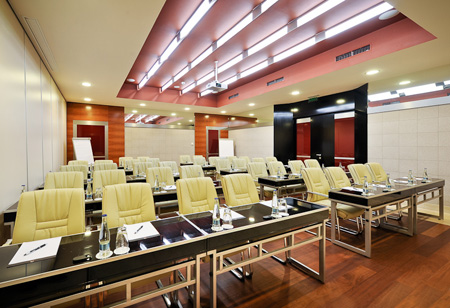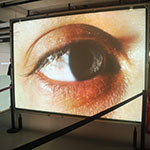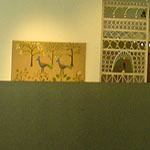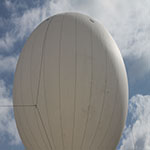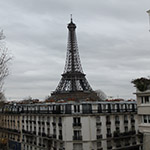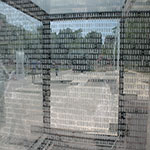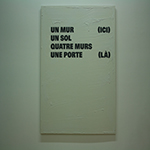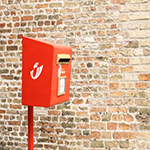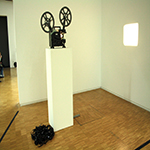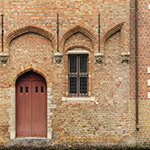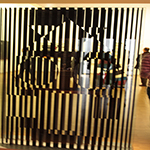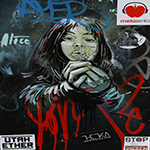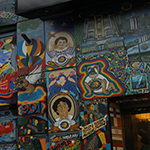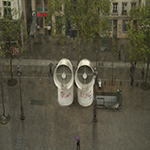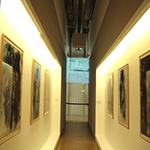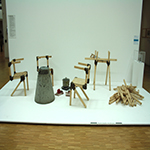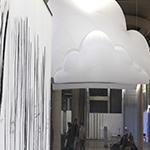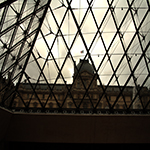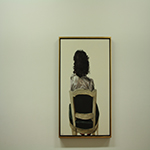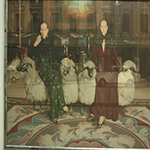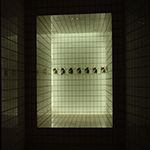Conference testimonials
Dear friends, It is my pleasure to share with you a few thoughts about the Second Euroacademia Conference 'Re-Inventing Eastern Europe', in which I have participated recently. First and foremost I would like to thank the organizers, and shed a light on their amazing effort and competence in making the conference not only a wonderful academic experience, but also a stimulating and exciting space where participants exchanged knowledge, ideas and perspectives. Kudos! I also thank the participants who, with every paper presented and question(s) asked and answered, re-discovered and re-invented not only the fascinating Eastern Europe, but also the meanings of friendship and generosity, in the academic sense and not only. Thus, so many collaborations and friendships started in a rather cold Prague, but so warm within the conference's perimeters! Thank you all. (Camelia Lenart, SUNY Albany, USA)
Grand Majestic Plaza
Truhlářská 16, 110 00 Prague 1 Czech RepublicConference program
- November 15, 2013
- 09:00 - 09:30Registration of Participants (Reception Desk, Foyer)
- 09:30 - 10:30Welcome and Opening Remarks
- 10:30 - 11:00Coffee Break and Snacks (Foyer)
- 11:00 - 13:00Panel 1 – Thinking Eastern Europe: Reflections on Identities, Perceptions and Invented Regions (Chair: Emanuel Crudu, IMT Institute for Advanced Studies, Lucca, Italy)
- 13:00 - 14:00Lunch - Grand Majestic Plaza Restaurant
- 14:00 - 16:00Panel 2 – Mental Mappings of Europe – East and West: From the Persistence of a Division to Peopling the Eastern Europeans (Chair: Dana Domsodi, Scuola Superiore Sant’Anna, Pisa, Italy)
- 16:00 - 16:30Coffee Break and Snacks (Foyer)
- 16:30 - 18:30Panel 3 – Art as Cultural Diplomacy: (Re)Constructing Notions of Eastern and Western Europe (Chair: Cassandra Sciortino, University of California, Santa Barbara, USA)
- 18:30 - 20:00Panel 4 – Visual Urban Transformations: Transition and Change in Urban Image Construction in Central and Eastern Europe (Chair: Daniela Chalániová, Anglo-American University in Prague)
- 20:00 - 20:30Welcome Drink and Snack (Grand Majestic Plaza - Atrium)
- 20:30 - 22:30Optional Social Dinner at a Czech Cuisine Restaurant
- November 16, 2013
- 09:00 - 10:30Panel 5 – Readings of the Past: On History and Memory in Central and Eastern Europe (Chair: Emanuel Crudu, IMT Institute for Advanced Studies, Italy)
- 10:30 - 11:00Coffee Break and Snacks (Foyer)
- 11:00 - 13:00Panel 6 – Central and Eastern Europe and the EU: Assessing the EU’s Normative Claims and the Future of Integration (Chair: Adam Kola, Nicolaus Copernicus University, Poland)
- 11:00 - 13:00
- 13:00 - 14:00Lunch – Restaurant Grand Majestic Plaza
- 14:00 - 16:00Panel 7 – Art as Cultural Diplomacy: (Re)Constructing Notions of Eastern and Western Europe (Chair: Cassandra Sciortino, University of California, Santa Barbara, USA)
- 16:00 - 16:30Coffee Break and Snacks (Foyer)
- 16:30 - 18:30Panel 8 – Central and Eastern European Politics: Case Studies of Social and Political Change (Chair: Jan Kovar, Metropolitan University Prague/Institute of International Relations)
- 18:30 - 20:00Panel 9 – Domestic Developments in Western Balkans (Chair: Nicasia Picciano, University of Flensburg, Germany)
- 20:00 - 20:15Closing Session
- 20:15 - 22:30Optional Social Dinner at a Czech Cuisine Restaurant
- November 15, 2013
Re-Inventing Eastern Europe (The Second Edition)

- Conference Description
- Participant’s Profile
- Registration and Fee
- Social Activities and Publication
- Important Dates
- Venue and Directions
- Conference Program
- Panel 1
- Panel 2
- Panel 3
- Panel 4
- Panel 5
- Panel 6
- Panel 7
- Panel 8
- Panel 9
The Second International Conference
‘Re-Inventing Eastern Europe’
15 – 16 November 2013, Prague
Grand Majestic Plaza Hotel
Prague, Czech Republic
Conference Description
Not a long time ago, a British lady was considered bigoted by Gordon Brown upon asking ‘all these Eastern Europeans what are coming in, where are they flocking from?’(1). The zoological word is not a novelty in the cultural invention of Eastern Europe. Maybe, despite her concern with the dangers of immigration for Britain, the lady was right in showing that such a question still awaits for answers in Europe. The ironic aspect however is that a first answer to such a question would point to the fact that the Eastern Europeans come from the Western European imaginary. As Iver Neumann puts it, ‘regions are invented by political actors as a political programme, they are not simply waiting to be discovered’(2). And, as Larry Wolff skilfully showed, Eastern Europe is an invention emanated initially from the intellectual agendas of the elites of the Enlightenment that later found its peak of imaginary separation during the Cold War(3).
The Economist, explicitly considered Eastern Europe to be wrongly labelled and elaborated that ‘it was never a very coherent idea and it is becoming a damaging one’(4). The EU enlargement however was expected to make the East/West division obsolete under the veil of a prophesied convergence. That would have finally proven the non-ontological, historically contingent and unhappy nature of the division of Europe and remind Europeans of the wider size of their continent and the inclusive and empowering nature of their values. Yet still, more than 20 years after the revolutions in the Central and Eastern European countries, Leon Mark, while arguing that the category of Eastern Europe is outdated and misleading, bitterly asks a still relevant question: ‘will Europe ever give up the need to have an East?’(5)
Eastern Europe was invented as a region and continues to be re-invented from outside and inside. From outside its invention was connected with alterity making processes, and, from inside the region, the Central and Eastern European countries got into a civilizational beauty contest themselves in search of drawing the most western profile: what’s Central Europe, what’s more Eastern, what’s more Ottoman, Balkan, Byzantine, who is the actual kidnapped kid of the West, who can build better credentials by pushing the Easterness to the next border. A wide variety of scholars addressed the western narratives of making the Eastern European ‘other’ as an outcome of cultural politics of enlightenment, as an effect of EU’s need to delineate its borders, as an outcome of its views on security, or as a type of ‘orientalism’ or post-colonialism. Most of these types of approaches are still useful in analyzing the persistence of a East-West slope. The region is understood now under a process of convergence, socialization and Europeanization that will have as outcomes an ‘ever closer union’ where the East and the West will fade away as categories. Yet the reality is far from such an outcome while the persistence of categories of alterity making towards the ‘East’ is not always dismantled. The discourses on core/non-core, new Europe/old Europe, pioneers/followers, teachers/pupils, centre/periphery, cosmos/chaos are often maintaining significant ground within the arena of European identity narratives often yet not exclusively voiced by the EU.
The Second Euroacademia International Conference ‘Re-Inventing Eastern Europe’ aims rather than asserting to make a case and to provide alternative views on the dynamics, persistence and manifestations of the practices of alterity making that take place in Europe and broadly in the mental mappings of the world. It offers an opportunity for scholars, activists and practitioners to locate, discuss and debate the multiple dimensions in which specific narratives of alterity making towards Eastern Europe preserve their salience today in re-furbished and re-fashioned manners. The conference aims to look at the processes of alterity making as puzzles and to address the persistence of the East-West dichotomies.
(1) See the whole dialogue between Gillian Duffy and Gordon Brown on BBC News online at http://news.bbc.co.uk/2/hi/uk_news/politics/election_2010/8649448.stm
(2) Neumann, Iver. 2001. Regionalism and Democratisation. In Jan Zielonka and Alex Pravda (eds.), Democratic Consolidation in Eastern Europe, Vol 2 International Dimensions. Oxford and New York: Oxford University Press, pp. 58 – 75, p. 71.
(3) Wolff, Larry. 1994. Inventing Eastern Europe. The Map of Civilization on the Mind of the Enlightenment. Stanford: Stanford University Press.
(4) The Economist, January 7th 2010, http://www.economist.com/node/15213108
(5) Marc, Leon. 2009. What’s So Eastern about Eastern Europe? Twenty Years After the Fall of The Berlin Wall. Trowbridge: Oldcastle Books, p.161.
Participant’s Profile
The conference is addressed to academics, researchers and professionals with a particular interest in Central and Eastern Europe from all parts of the world. As the nature of the conference is intended to be multidisciplinary in nature different academic backgrounds are welcomed.
Post-graduate students, doctoral candidates and young researchers are welcomed to submit an abstract. Representatives of INGOs, NGOs, Think Tanks and activists willing to present their work with impact on or influenced by specific understandings of the Central and Eastern Europe are welcomed as well to submit the abstract of their contribution.
Abstracts are reviewed and the participants are selected based on the proven quality of the abstract. The submitted paper for the conference proceedings is expected to be in accordance with the lines provided in the submitted abstract.
Registration and Fee
The participation fee includes:
- the registration fee,
- participant’s package with all the materials for the conference
- access to proceedings published e-volume and a copy of the electronic volume
- access to Euroacademia discussion group and newsletters
- discounted rates for participation in the future Euroacademia conferences
- daily welcome coffee with snacks and conference drinks (water/sodas)
- coffee brakes with snacks for all the duration of the conference
- sparkling wine reception with snacks on 15th of November 2013
- a 4 course lunch on 15th of November 2013 at the 4* Grand Majestic Plaza Restaurant
- a 4 course lunch on 16th of November 2013 at the 4* Grand Majestic Plaza Restaurant
- preferential discounted rates for room reservations at Grand Majestic Plaza Hotel
- certificate of attendance
- access to the optional social program.
Unfortunately, Euroacademia has no available funds for covering transport and accommodation to/in Prague. Participants are responsible for finding funding to cover transportation and accommodation costs during the whole period of the conference. Official letters can be sent by Euroacademia to the financing institution to confirm the selection and participation in the conference upon request.
Social Activities and Publication
A specific spot in the conference program will be dedicated to social networking and therefore all the participants interested in setting or developing further cooperation agendas and prospects with other participants will have time to present and/or promote their project and express calls for cooperation.
A specific setting (Social Corner) for promotional materials connected with the topic of the conference will be reserved for the use of the participants. Books authored or edited by the participants can be exhibited and promoted during the whole period of the conference and can also be presented within the conference package based on prior arrangements.
An optional social dinner will be organized for the first and second evenings of the conference as optional program for the willing participants. The social dinner will be held based on participant’s confirmation and it costs around 25 Euro to be covered by the participants individually.
Publication:
Selected papers will be published in an electronic volume with ISBN after the confirmation of the authors and a double peer-review process based on an agreed publication schedule. All the papers selected for publication should be original and must have not been priory published elsewhere. All participants to the conference will receive a copy of the volume.
Specific selected papers will be selected to be published in CEJISS (Central European Journal of International & Security Studies)
About CEJISS
Formally launched in January 2007, CEJISS is designed as a double-destination scholarly bridge. The first bridge was constructed with Central Europe (Czech Republic, Hungary, Poland and Slovakia) in mind, focusing on increasing the audience for Central European scholars. In this regard, CEJISS is making a substantial impact as each issue attracts attention in some 45,000 people in nearly 160 countries. However, CEJISS is not Central European centric and invites scholars from around the world to contribute. This has meant that just as Central European scholars now have an easier time gaining a footing outside of the region, so international scholars also have an easier time getting in and making an impact here. With a mere two decades separating our times from the ‘darker’ Cold War years, CEJISS aims to contribute English language perspectives to the peoples of Central Europe and give the latter the amplification their research deserves.
Specific selected papers will be also eligible for selection and published in East European Politics
| Important Dates | |
|---|---|
| 15 September 2013 | Deadline for Submitting Panel Proposals |
| 20 October 2013 | 300 words abstracts and details of affiliation |
| 22 October 2013 | Latest notification of acceptance |
| 25 of October 2013 | Sending the registration form |
| 30 October 2013 | Payment of the conference fee |
| 3rd of November 2013 | Sending the draft paper to be uploaded on the web site of the conference |
| 4th of November 2013 | Publication of the conference program and uploading the draft papers on the website |
| 15th of November 2013 | The conference commences at 9.00 am |
Venue and Directions
The conference will take place in the conference premises of the exclusive 4 stars deluxe design Grand Majestic Plaza Hotel, centrally located in the heart of Prague, easily accessible from the historic center and within a walking distance from all the major tourist attractions: just few steps away from the famous Municipal House, Gothic Powder Gate, significant Republic Square and the most attractive shopping centre Palladium.
Hotel Grand Majestic Plaza, Prague
Truhlářská 16, 110 00 Prague 1
Czech Republic
Tel.: +420 211 159 100
Fax: +420 211 159 159
E-mail: [email protected]
Prague is a wonderful European city with a very rich history and a vivid passionate intellectual life; a place full of various and inspiring cultural events, sightseeing opportunities, great food, exquisite architecture and of course the city that brings easily to your mind Jan Hus, Franz Kafka, Jan Palach, the Prague Spring, and Milan Kundera. After all these, the unique atmosphere gives anyone a chance for personal memories and reveries. Prague is a city of beautiful moments!
See full information about the conference Location & Map:
HERE
Conference participants are responsible for arranging the accommodation and travel. However, discounted rates for a limited number of rooms in the hotel where the conference takes place can be arranged by organizers and announced to selected participants upon request.
The Second Euroacademia Conference: Re-Inventing Eastern Europe
The full conference program is available by clicking on each panel’s tab below
Thinking Eastern Europe: Reflections on Identities, Perceptions and Invented Regions
(Chair Emanuel Crudu, IMT Institute for Advanced Studies, Italy)
- Jan Patočka via Jacques Derrida: Phenomenology, Deconstruction and the European EidosThe paper aims to interpret the critical relation between Derrida’s concept of the appeal ‘to-come’ and Patočka’s pursuit of the ‘soul’ for Europe.Ruhtan Yalçıner, Hacettepe University, Ankara, Turkey
- A Success Story, or How the East Jumped Over Its Economic ShadowThis presentation inquires about the suspicious and deceitful nature of re-inventing of the East as a model for the South. Conflict and poverty still have a strong grip over the REBeLL states, but there is indeed an economic capitalist stake in framing this reality as a success story to be followed by the PIIGS.Dana Domsodi, Scuola Superiore Sant'Anna, Pisa, Italy
- A “Laboratory of Twilight” Versus a “Pub in Bořivojova Street”: Demystifying the Czech Myth and Decentring Central Europe in Emil Hakl’s Of Kids and Parents (O rodičích a dětech)Of Kids and Parents exposes the absurdities embedded within the common question in the Czech language “So what’s new?” [“Tak copak je nového?”] and within any attempt to fix and fixate on the “central/periphery” dichotomy as readers.Verita Sriratana, Comenius University in Bratislava, Slovakia
- Regaining Dignity in EuropeCan we talk about regaining dignity in eastern Europe? Is there indeed a collective dignity? In my opinion there are certain political systems in which it is impossible to maintain dignity. The question remains: If such a system is over does dignity reappear automatically?Zuzana Lučkay Mihalčinová, Human Dignity and Humiliation Studies, Slovakia
- Voices from the (Semi)Peripheries: East and Central European Debates on European IdentityThis (semi)peripheral Europe can offer courageous solutions in the process of building European community not as an exclusive but inclusive model. Let’s look back into (semi)peripheral histories to find voices of the marginalized and to find new Europe.Adam Kola, Nicolaus Copernicus University, Poland
Mental Mappings of Europe – East and West: From the Persistence of a Division to Peopling the Eastern Europeans
(Chair Dana Domsodi, Scuola Superiore Sant’Anna, Pisa, Italy)
- Between Switzerland and Serbia: An Anthropological Look at Cross Discourses on “Otherness” and Their Epistemological Implications for the ResearcherBy problematizing the discourses revolving around my main topic of research, in Switzerland and in Serbia, I will be able to raise some questions (1) about some cross representations between these two countries geographically close but at the same time culturally distant (a persistent dichotomy between the ‘Western’ and the ‘Eastern’ Europes) and (2) about the epistemological implications of the anthropologist’s origins in the anthropological objet construction process.Michaël Busset, Laboratory of Cultural and Social Anthropology, University of Lausanne, Switzerland
- The French Mental Mapping of East Central Europe and the Pursuit of France’s Milieu Goals (1871-1925)The purpose of this contribution is to explain the origins, the main actors and the distinct features of the mental mapping process the led to the reviving of French interest in this region, first through the lenses of dedicated scholars and eventually through the strategies of foreign policy makers.Marius Mitrache, Universite Paris-Est, Paris, France
- The West through Moldavian Lens: Reflections on a Liminal Identity The Moldovans construct themselves a liminal: part Romanian/European, part outsider and thus inferior. The national identity issue is, thus, augmenting the sense of marginalisation and inferiority in Moldova’s normative representation of the EU, offering an original take on the way in which the East-West cleavage divides nations.Roxana Adina Huma, University of Plymouth, UK
Art as Cultural Diplomacy: (Re)Constructing Notions of Eastern and Western Europe – Section One
(Chair: Cassandra Sciortino, University of California, Santa Barbara, USA)
- The Role of Art in Diplomacy and State’s International Representation in Latvia (1918–1940)Since the restoration of independence in 1991, the history of Latvia is considered to be a continuation of the period of the first period independence (1918-1940) with its achievements and failures in politics, economics and culture. This aim of this presentation is to assess the idea of continuity of cultural (art) institutions and the representation of art abroad.Ginta Gerharde-Upeniece, Latvian National Museum of Art, Latvia
- Paris-Moscow 1900-1930: Exhibition at the Centre Pompidou in Paris 1979Thanks to the discovery of new archives at the Centre Pompidou Paris, the recently published “mémoires” of Valéry Giscard d’Estaing and my own personal interviews of French ambassadors and curators in charge of the exhibit in 1979, my essay is able to shed new light on the cultural diplomatic role of Paris-Moscow, 1900-1930, a unique artistic event during the Cold War.Mathilde Poupée, Université Paris-Est, France
- Dancing Art and Politics beyond the Iron Curtain: Martha Graham’s 1962 Tour to Yugoslavia and PolandMy work demonstrates that Graham’s artistic and political performance beyond the Iron Curtain was a bold enterprise which deserves full attention and analysis, and not only because it redefined and enlarged the dancer’s career and the boundaries of American cultural diplomacy in Europe.Camelia Lenart, State University of New York in Albany
- Sculptor Ivan Meštrović – Cultural and Political Diplomat of 20th and 21st CenturyMeštrović used the platform of one man exhibitions (Victoria & Albert Museum, London, 1915) and joint projects (Exhibition of Yugoslav Artists, Petit Palais, Paris, 1919) as the tool of the dissemination of cultural and political diplomacy. In the period of the breakup of the second Yugoslavia, in the nineties, his role had been reassessed, providing the path to revision of his political and artistic persona.Barbara Vujanović, Curator – Museums of Ivan Meštrović, Meštrović Atelier, Zagreb
- Between Propaganda and Cultural Diplomacy: Nostalgia towards Socialist Realism in Post-Communist BulgariaThis paper argues that nostalgia towards Socialist Realism is one of the impediments, which hinder fine art to function as cultural diplomacy because it maintains a sense of an illusory wholeness, which connects the art world of the country to the closeness and the grand recit of Communism. Introducing aspects of a current practice based research; this paper focuses on institutional and personal examples of nostalgia, examined in relation to the functions of fine art as propaganda.Nina Pancheva-Kirkova, University of Southampton, Winchester School of Art, UK
Visual Urban Transformations: Transition and Change in Urban Image Construction in Central and Eastern Europe
(Chair: Daniela Chalániová, Anglo-American University in Prague)
- Conflicting Urban Identities: The Multiple Images of SarajevoThis paper discusses the urban transformation of Sarajevo as a controversial process of identity making and reshaping; in particular, it shows how the East-West dichotomy, along with its stereotypes and imposed imaginary, can be acknowledged by looking at the city’s architecture.Elena Bassi, University of Milano-Bicocca, Milan, Italy
- “Urboglyphs” (Urban Figures of Memory) and Spaces of Lived Experience: New Forms to Reawaken the MemoryMemory is above all anti-museum that unfolds in space, constructed as lived and moving expression that the arts of the city building must recover along with spatial reconstruction.Sandra Uskokovic, Arts & Restoration Department, University of Dubrovnik, Croatia
- Ephemeral Architecture Built to “stay.” Urban Transformations for the Realization of the Great Exhibitions in Italy in the First Half of the Twentieth Century: From the Realization to PresentAbstract: During the Thirties and Forties of the Twentieth century in Italy, the main themes in the arts imposed by the fascist regime were inspired by ancient Rome, to the colonial conquest and the construction of new enterprises in Africa. These recurrent themes, together with an exhibition apparatus required, mainly technical, did not prevent some artists and architects to achieve peaks of high quality. The propaganda messages that were produced in the thirties and forties of the twentieth century in Italy, are due mainly to two aesthetic trends: one is part of the paradigGiovanni Arena, Second University of Naples, Italy
Readings of the Past: On History and Memory in Central and Eastern Europe
(Chair Emanuel Crudu, IMT Institute for Advanced Studies, Italy)
- The Western Jewish Communities as Perceived by Polish Jews in the Interwar Period (1918 – 1939) The Jewish Communities in the west were perceived as communities which combined their Jewish characteristics with Modernity and patriotism, while the Jewish communities in Poland were described as traditional. The lecture will discuss the impact of this concept on the self image of assimilated Polish Jews. My lecture will present the different perception of the Jewish communities.Miriam Freilich, Beit Berl College, Israel
- Imagining Post-World War II East-Central Europe from the Perspective of Romanian DiplomacyThe paper approaches East-Central Europe from the perspective of Romanian diplomacy. Caught between East and West during the World War II and with the perspective of a Soviet occupation regime looming ahead, the Romanian Government formed a body of experts to prospect the future setting of Europe.Marian Silviu Miloiu, Valahia University of Targoviste, Romania
- Communism and Social-Democracy in Search for a Common Vision of EuropeDrawing on recently declassified archives, this paper argues that Nicolae Ceausescu, leader of the Romanian Communist Party (PCR), adopted the Italian theses and tried to approach Socialists and Social-Democrats in Western Europe, much to Moscow's discontent.Stanciu Cezar, University Valahia of Târgoviste, Romania
- The ‘Foreign Enemy’ in the Archives: Constructing the ‘Communist’ Enemy in the Discourse of Political Detention in RomaniaThis paper is not about the history of communist political detention in Romania per se. I am not after finding and establishing ‘facts’ about the way the detention system functioned. Instead, I examine how historical ‘facts’ about communist detention are constructed and how ethnic and gender categories are produced and reproduced along the way.Theodora Eliza Vacarescu, University of Bucharest, Romania
- The Bektashi Order: The Development of Bektashi Order among the Albanian Speaking Population in the Balkan RegionWhile referring to Albanians, many politicians and journalists in Europe and abroad have a tendency to mention that Albanian population in Albania, Kosovo and Macedonia are more or less Muslims. Unfortunately nowadays the world understands that to be a Muslim for sure means the same as the orthodox Muslims in Iraq or Afghanistan. But the reality is absolutely different.Kestrina Peza, Institute of Near Eastern and African Studies at Charles University in Prague, Czech Republic
Central and Eastern Europe and the EU: Assessing the EU’s Normative Claims and the Future of Integration
(Chair: Adam Kola, Nicolaus Copernicus University, Poland)
- Citizens Without Names: What is the Impact of the Runevič – Vardyn Litigation on European Integration in Poland and Lithuania?The paper seek to establish how EU law can overcome the challenges posed by Eastern Europe’s different constitutional realities by focusing on EU citizenship and its potential role as a catalyst for integration.Egle Dagilyte, Bucks New University, UKPanagiotis Stasinopoulos, King’s College London, UK
- Party Discourse about European Future: Political Parties, Elections, Manifestos and MetaphorsThis paper opts for a different approach to study the party positions on European integration, an approach based on the analysis of metaphors used by political parties in the discourse about the future form of European integration.Jan Kovár, Metropolitan University Prague & Institute of International Relations Prague, Czech Republic
- Me and You and Europe: A Metaphorical Analysis of Eastern and Western European Countries’ Relationship with the European UnionThe goal of this paper is to interpret and compare the Eastern and the Western, the old and the new members’ relationship with the European Union, based on a metaphoric analysis of political cartoon discourse in Czech Republic, Slovakia, United Kingdom and Germany.Daniela Chalaniova, Anglo-American University, Prague, Czech Republic
- EU – LEX Kosovo: Alterity Shaping Capability Questioned?While going through the extensive literature on state - building, the author aims at providing new hermeneutic lenses for a better understanding of why EU civilian missions are incapable of addressing the complexity of an ethno - politicized environment Kosovo - like, and how they may better equipped to deal with it.Nicasia Picciano, University of Flensburg, Germany
- The EUPM Mission in Bosnia and Herzegovina: Is the EU a Human Security Provider?The paper seeks to shed light on the EU as a human security provider, an emerging issue-area of enquiry that records a relatively growing academic literature.Efstathios Fakiolas, Department of Political Science and International Relations, Corinth, Greece
- The Role of NGOs in Enhancing EU Integration Aspirations in Eastern Europe: Youth Political EmpowermentThe present research has been conducted with the aim to examine youth participation in civic EU-related activities and make comparative analysis of youth political involvement in EU affairs in eastern-European states with special emphasis on Ukrainian case.Vira Tubaltseva, European Youth Parliament, Kyiv National Taras Shevchenko University, Ukraine
Art as Cultural Diplomacy: (Re)Constructing Notions of Eastern and Western Europe – Section Two
(Chair: Cassandra Sciortino, University of California, Santa Barbara, USA)
- The Latvian National Museum of Art: Dialogues on the Basis of European HistoryIn 2014 Riga will become the European Capital of Culture, and the various events that are being planned will offer a unique opportunity to reveal the fact that Latvia and its capital city belong to the common values of European culture. One of the projects of the Latvian National Museum of Art will be an exhibition, “1914,” which will be dedicated to World War I and the countries which gained independence during that period.Ginta Gerharde-Upeniece, Latvian National Museum of Art, Latvia
- Cultural Diplomacy and the Temporary StudioArtists play a significant role in re-conceptualizing relationships between Europeans formerly kept asunder by the Iron Curtain. Many artists' residency programs started up since 1989 and provide temporary studio space upon application and acceptance. The article discusses the purposes, scope, and outreach of such programs.Esther Tornai Thyssen, Emmanuel College, Boston, Massachusetts, USA
- Giorgio Vasari and Niccolò Machiavelli: Appetite for Peace and GloryThis study analyzes the literary and visual connections between war and peace made by both Machiavelli and Vasari, as exemplified in Giorgio Vasari's portrait of Alessandro de’ Medici of 1555-60 (Palazzo Vecchio, Florence), which visually embodies the paradox of war and peace discussed in Niccolò Machiavelli’s The Art of War (1521).Liana De Girolami Cheney, Universidad de Coruña, Spain
- Louvre Abu Dhabi: a Space of Economic, Diplomatic, and Sociocultural ActionThis communication seeks to expose that the national museum is not a neutral platform showing art, but rather a diplomatic institution; it seeks to expose the ideological constructions involved, more or less subliminally, in the Louvre Abu Dhabi Agreement. And, while considering the limits of multiculturalism, it wishes to consider substituting the concept of Alterity that refers to a pseudo essentialism of self and the other, for the one of “Altruity”, proposed by Roger Somé, which refers to fellow men as distinct, subject of encounter rather than object of study.Viviane Gautier-Jacquet, Université de Montréal, Canada
- TBA
Central and Eastern European Politics: Case Studies of Social and Political Change
(Chair: Jan Kovar, Metropolitan University Prague/Institute of International Relations)
- Statelessness: Challenging the “Europeaness” in the BalticsIn this paper I will use the concept of Europeanization and will concentrate more specifically on what Olsen in his article The Many Faces of Europeanization labelled as “domestic effect of Europeanization”: analysis of how the domestic institutions deal with the pressures coming from the European level. This paper will thus concentrate on the pressure coming from the European level to sort out the problem of “statelessness” on its territory. The comparative analysis of how European values and policy paradigms are internalized at the domestic level in Latvia and Estonia will help to cast further light on the challenges to the political identities of these countries.Anya Gromilova, Metropolitan University Prague, International Relations and European Studies Department (IRES)
- Formation of Political Parties and Electoral Coalitions: The Case of LatviaThe case of Latvia in this paper is viewed from two points of view. First of all there is the national question, which already 23 years after regaining independence is the key trump card of elections. The Second issue that appears is the amount of pre-electoral coalitions and lack of ideology within them and raises the hypothesis: unity of ideology is not the reason for parties to merge and create party coalitions.Kristiana Kalnina, Riga Stradins University, Latvia
- Liberal Education in CEE Countries: A Case Study of MISH UW in the Transitional PeriodDuring the last two decades a number of things have changed, for internal as well as external factors have played role. A generational change is getting close, and the need of a more distinct vision of study spreading. In the last part of my presentation, I would like to present current discussions on reforming MISH.Daniel Kontowski, Institute of Sociology, University of Warsaw
- The Prestige of Westernization: “Among people”- Roma Students in a Village from Northern RomaniaThe researcher argues that the Roma who collaborated in this study do not have a different set of values from non-Roma and they ‘want in’ (Gmelch, 1985). Even though the focus of this project is not on the exotic Romani-speaking Roma, my informants are still seen in their community and country as a ‘pure Roma’ (Acton, 1974). The data collected is based on interviews and participant-observation conducted in the summer of 2013 in a village from the Northern Romania.Casiana Pascariu, Washington State University, USA
Domestic Developments in Western Balkans
(Chair Nicasia Picciano, University of Flensburg, Germany)
- New Challenges of the Western Balkan Countries and Turkey on the Way to European UnionWill the idea of a European perspective for Western Balkan countries and Turkey be achieved in the recent future or will these countries be left to themselves to remain on the margins of Europe? Is it possible to achieve healthy economic growth, stability and living standard suitable to citizens out of European Union? The future will bring answers to these questions. For the time being, I will try to anticipate some scenarios for the future based on economic analysis.Ivana Božić Miljković, Union University, Belgrade
- Albania: The Analysis over the Past and the Future Government of this Small and Important Balkan CountryMy presentation will focus on the analysis of the Sali Berisha´s government during the past eight years, his achievements and mistakes, and what mistakes new PM Edi Rama should avoid in order for Albania to become a EU member.Kestrina Peza, Institute of Near Eastern and African Studies at Charles University in Prague, Czech Republic
- Electoral System and its Impact on Political Parties in AlbaniaThe value of this paper consist in the fact that it is an original work based on different historical facts that have influenced the development of political parties. Highlighting the role of political parties as an important promoter of state functioning makes it an important study.Klajdi Mone, Department of Law, University “Ismail Qemali” Vlore, Albania
- Organizational Change and its Impact on Organizational Effectiveness in Albanian BusinessesAbstract: During these twenty years of democracy the Albanian managers not only had to attain the required pace to survive local competition but recently they had also to successfully face foreign competition. Free movement of both labour force and capital is increasingly making countries look smaller and markets bigger. Therefore, continuous organizational changes are required as well as successful implementation approaches of modern managerial methods. However, organizational changes in Business Organizations may often occur at inconvenient time, subject to the psychologicaDritan Shoraj, Faculty of Economy, University of Tirana, Albania











